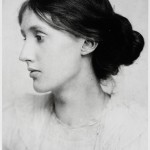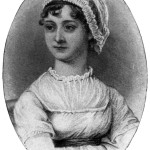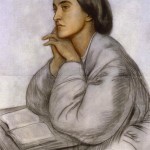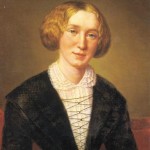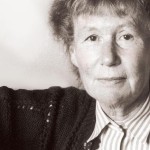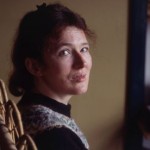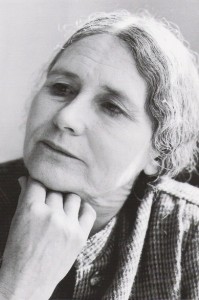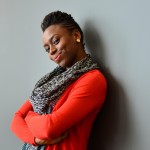In Praise of Women of Genius
3/26/15 IN PRAISE OF WOMEN OF GENIUS After my last essay, “On Talent and Genius”, whose examples of genius were mostly or—ahem—entirely male, one of my readers archly asked if I might be biased, even subconsciously. Of course one can affirm confidently that one is not biased consciously, but the charge of subconscious bias is unanswerable. The only way I could disprove it is by taking a psychological test. (And even then…) However, I do have a couple of responses to the accusation: first, my examples were male not because I believe that no women of genius could have been exercising those arts, but that in fact few did, until quite recently, because of societal pressures. One struggles to find great women painters before the end of the nineteenth century, and even in the twentieth, there are far fewer than great male ones. In music this is even clearer. All the same, I was remiss in mentioning women of genius in literature, particularly in English Literature, which has been a surprisingly fecund field for women, in spite of enormous prejudices against them. So let me enumerate some brilliant women who have practised the art of letters, especially fiction writers:
Jane Austen is one of the great English novelists, as Leavis claimed, for her wit, her moral acuity, and the sharpness of her vision. She is in fact the greatest novelist of her period, male or female. George Eliot is in my view the greatest novelist in the English language, and her masterpiece, Middlemarch, (which should be required reading for all students of writing) is our greatest novel. It almost rivals Tolstoy. In the nineteenth century, Christina Rosetti and Emily Dickinson are amongst the most significant poets. At the turn of the twentieth, Kate Chopin is overrated—she is studied more for her feminism than for the quality of her prose, if the truth be told (although that is not bad)—but on the other hand, Virginia Woolf is as brilliant a modernist as any, and in my view more prolifically gifted than DH Lawrence or even William Faulkner (and in my view she leaves James Joyce standing). Katherine Mansfield at the same period is one of the greatest short story writers, surely on a par with Hemingway, if not quite with Chekhov. (Yes, I am aware than I am quantifying and measuring, in a typically male way. Bear with me. You don’t have to agree. I bet you’ll agree with my conclusions, anyway.)
Of course it’s in the late twentieth century that women writers really begin to flourish, obviously because for the first time they have something like equal access to education. Consider poets like Sylvia Plath and Elizabeth Bishop, and in Britain novelists like Angela Carter (with whom I once spent a week, on a retreat at Lumb Bank, the house of Ted Hughes and Sylvia Plath) Jeanette Winterson, Iris Murdoch, Doris Lessing, Penelope Fitzgerald, Muriel Spark, AS Byatt, Rebecca West, Jean Rhys. I’m not sure I’d call any of them writers of genius, though they are as good as their male counterparts. In North America no one can deny the importance of Margaret Atwood, Toni Morrison or Alice Munro, although I find the last two somewhat overrated. Still, they are easily as good as the best male writers of their generation. And currently, I consider Jennifer Egan the greatest living novelist writing in the US—not excepting the savage Tyrannosaurus Rex, Roth, and De Lillo. Chimamanda Ngozi Adichie and Zadie Smith are first-rate too. (Smith as an essayist, especially.)
It is clear from the evidence that given equal opportunity, women artists can achieve as much as men. It may be that their art is somewhat different—the stereotype that women tend to write more miniatures, and more domestically, while men take on the vast global themes, has some truth in it. Women rarely write epics on the scale of War and Peace, although Irene Nemirovsky’s Suite Francaise was planned on that scale, and had it been finished, might well have rivalled Tolstoy himself. (And no, I don’t count JK Rowling.) What is extant shows that she was a writer of extraordinary gifts. (And why the Russians should be better than everyone else is a question I must leave for another essay!)
It remains true, all the same, that the Himalayan peaks in literature—Homer, Shakespeare, Dante, Tolstoy and Dostoyevsky—are men. Women writers of genius there have been, but I don’t see any of quite that stature, apart from Nemirovsky, who might well have ascended into the empyrean had her career not been truncated by the Nazis. (For once, the word ‘tragic’, which is almost always used hyperbolically and sentimentally, is fully justified.) But I am confident that in the future we will see not merely more women writers of genius, but women of the same stature as the very greatest of the male artists—just as long as the misogynists who use the Middle Eastern religions as an excuse to repress women (including fundamentalist ‘Christians’) are not allowed to exercise their tyrannies.
Now that women do have equal access to education, at any rate in the developed world, and are performing better than men in the liberal arts, this should be a time of unparalleled artistic excellence, and in some ways it is. But it could be better still if we could forget our allegiance to one sex or the other. The true artist is not bound by her sex—or his. Above all, the true artist is human. Shakespeare shows this again and again in his plays and his sonnets. So does Virginia Woolf in her novels and essays. But we are threatened by the rigid orthodoxy of the so-called ‘liberal’ intelligentsia, which in fact is anything but free. To be a bona fide intellectual, you must share the ‘progressive’ views of everyone else (it is actually reactionary and capitalistic, in general, manipulated by the media and the massive corporations who profit from them.)
My advice: put away your rage, if you have any, and read with an open mind. Men and women, of all colours, creeds and ethnicities. No one has a monopoly on beauty and truth. Not even Johnny Keats. Or I! (But if I can’t pontificate here, where can I?)
Garry Craig Powell
Garry Craig Powell, until 2017 professor of Creative Writing at the University of Central Arkansas, was educated at the universities of Cambridge, Durham, and Arizona. Living in the Persian Gulf and teaching on the women’s campus of the National University of the United Arab Emirates inspired him to write his story collection, Stoning the Devil (Skylight Press, 2012), which was longlisted for the Frank O’Connor International Short Story Award and the Edge Hill Short Story Prize. His short fiction has appeared in Best American Mystery Stories 2009, McSweeney’s, Nimrod, New Orleans Review, and other literary magazines. Powell lives in northern Portugal and writes full-time. His novel, Our Parent Who Art in Heaven, was published by Flame Books in 2022, and is available from their website, Amazon, and all good bookshops.
- Web |
- More Posts(79)
